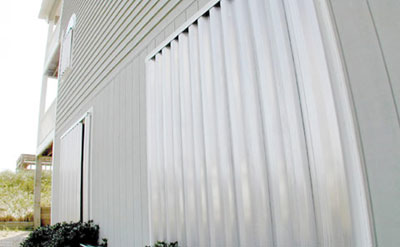“The best laid-out plans of mice and men often go awry” is an apt quote because many of the best laid-out plans tend to reveal loopholes even by those created and planned by experts and professionals.
A great way to assure yourself and your family that everything is taken care of is by having a progressive and active last minute hurricane protection checklist that you can keep updating whenever necessary.
Here are some ideas to add to this checklist. Make sure that every family member or employee is allowed to contribute to the checklist because it gives them a sense of involvement which increases awareness.
Before the Hurricane
- Buy protective gear for the house and other structures like the hurricane shutters.
- If possible, invest in a small generator.
- Buy the fuel for the generator but make sure to store it properly.
- Keep pantry stocked with canned goods good for 3 days, emergency cash, water, batteries, a radio, matches, string, packs of work gloves, flashlights, and extra mobile phone batteries, fully charged.
- Buy a chain saw or a bow saw. Make sure you have extra blades. You should also have fuel for power tools as well as a shovel, crowbar, lopper, and pruner.
- Make sure your First Aid kit is fully stocked.
- Invest in a power bank that can charge your phones and laptop.
Right before a hurricane
- Bring in outdoor furniture, toys, and other movable objects
- Trim trees
- If you have a propane gas grill, do not bring it into the house. Secure it well by making sure it will not be blown away or start leaking. However, never store a propane gas on its side.
- Check your insulation on windows and doors.
- Secure your roof
- Install your hurricane shutters
- Check your gutters for debris like leaves
- Prepare some sandbags
- Shut off your gas.
- Get everyone home or off to a safe house or shelter
During a hurricane
- Keep your battery-operated radio on so you can monitor the storm.
- Have some games or activities for children to keep them entertained
- If the power goes out, shut off all home appliances. This makes sure that when the power is back on; your appliances are not automatically switched on and left unattended.
- Avoid flushing toilets.
Finally, storms are best dealt with as a community. You and your neighbors can form part of a team that will organize and help whoever is in trouble. This will allow you to tap into the specialized skills of your neighbors as they will be able to tap in on your skills and experience.




